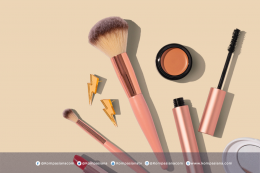2. Exfoliating (if applicable):
Exfoliation helps slough off dead skin cells, unclog pores, and improve skin texture. However, it's essential to exfoliate no more than 2-3 times a week to avoid over-exfoliation, which can lead to irritation and sensitivity. Choose a chemical exfoliant with AHAs (alpha hydroxy acids) or BHAs (beta hydroxy acids) suited to your skin type.
3. Toning:
After cleansing or exfoliating, apply a toner to rebalance your skin's pH levels and prepare it for better absorption of subsequent skincare products. Opt for toners with hydrating and soothing ingredients to calm the skin and reduce redness.
4. Treatment Products (like serums):
This step involves using targeted treatment products such as serums or ampoules to address specific skin concerns. Consider incorporating serums containing active ingredients like retinoids for anti-aging benefits, vitamin C for brightening and antioxidant protection, or hyaluronic acid for hydration.
5. Moisturizing:
Finish your nighttime routine with a nourishing moisturizer to lock in moisture and support the skin's barrier function. Choose a moisturizer suitable for your skin type—whether it's lightweight for oily or acne-prone skin or rich and creamy for dry or mature skin.
Benefits of Specific Nighttime Treatments:
Retinoids: Retinoids are powerhouse ingredients known for their anti-aging properties. They stimulate collagen production, reduce the appearance of fine lines and wrinkles, and improve skin texture and tone over time. Start with a low concentration and gradually increase usage to minimize potential irritation.
Hydrating Masks: Hydrating masks or overnight masks are excellent additions to your nighttime routine, especially for dry or dehydrated skin. These masks deliver intense hydration, nourishment,and moisture to the skin while you sleep, leaving you with a refreshed and rejuvenated complexion in the morning.







